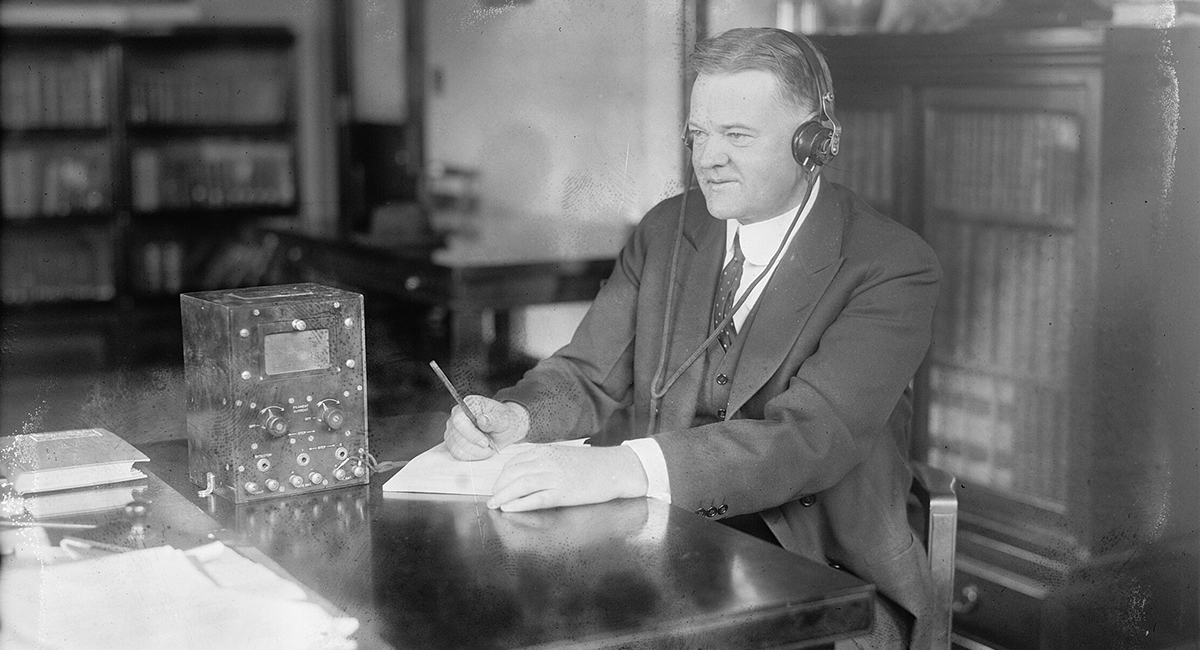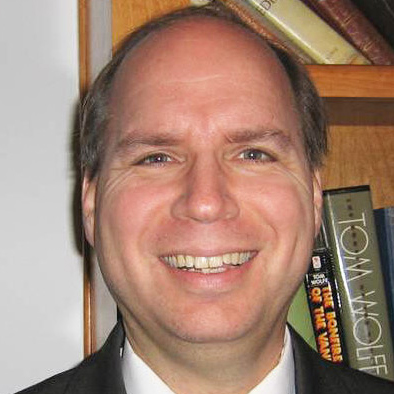After failing in its quest for net neutrality, the Federal Communications Commission is targeting another nonproblem. Dividing along party lines, it has approved a plan to vastly expand federal powers over the internet to eliminate “digital discrimination.” This tradition of refusing to just leave well enough alone has a long pedigree. More than 100 years ago, Secretary of Commerce Herbert Hoover, belying his reputation as a “do nothing” ideologue, sought to create a public demand for more regulation over radio by intentionally inflicting “chaos” on millions of listeners.
From the time he took office in 1921, Hoover worked unsuccessfully to expand the Department of Commerce’s authority over the new medium. In the six years after the first commercial broadcast in 1920, 600 stations took to the airwaves. The owners represented a remarkable amalgam. They included a wide range of for-profit companies, colleges, churches, fraternal societies, unions, and political organizations.
Under the Radio Act of 1912, the federal government could do little more than ratify the first users in their wavelengths and police against interference. One observer aptly compared this “to the Homestead Laws under which the government’s land (the free element—in radio, the ether) becomes the user’s [property] irrevocably in fee simple.” Free speech flourished, perhaps even more than in the print press. When asked to specify what powers the Commerce Department had over radio speech, a high official responded, “Absolutely nothing.”
Hoover, however, had other ideas. “We hear a great deal about the freedom of the air,” he complained. “But...Freedom cannot mean a license to every person or corporation who wishes to broadcast his name or his wares and thus monopolize the listener’s set.” Opposing any attempt to allow property rights in wavelengths, Hoover emphasized the “necessity to establish public right over the ether roads.”
His main stumbling block was Hoover v. Intercity Radio Co., a ruling by the Supreme Court of the District of Columbia in 1923. The ruling clearly confined the Commerce Department’s powers to granting licenses to all applicants who met minimum qualifications and policing against interference in their wavelengths. Essentially, it put a stamp of approval on a squatters’-rights approach to de facto property rights.
Most Americans seemed content with this. Legal scholar Frank S. Rowley stated that the “situation was fairly well in hand.” Neither listeners nor owners showed any sense of urgency, much less of crisis.
That abruptly changed in 1926 with a politically engineered crisis. It began after Eugene F. McDonald, head of the Zenith Corporation, flouted the department’s rules by “jumping” his wavelength to a more desirable one previously allotted to another user. Like Hoover, McDonald hoped to create an outcry for more federal regulation over both wavelengths and content. When Hoover ordered the department to sue Zenith in the District Court of Northern Illinois, he did so as an ally.
The court ruled that the department had no authority to enforce existing wavelengths. Revealingly, Hoover did not appeal to resolve the clear contradictions with the Intercity decision. Instead, he, backed by a legal opinion from his political protegee Assistant Attorney General William J. Donovan, instructed the department to stand down from any regulatory role (aside from register of licenses). This “strategic manufacture of chaos,” as Thomas Hazlett puts it, gave stations free rein to jump frequencies and boost power. A leading supporter of more regulation aptly concluded that the department had almost invited broadcasters to “do their worst.” The effect was to make Americans “completely ‘fed up’ with uncontrolled radio with its wave pirating, interferences, and blatant noises under the guise of programs” and to demand “that the ‘program smearer’ be regulated into a semblance of order.” As Hoover had hoped, this manufactured crisis prompted legislation enacting governmental control over the airwaves by the Federal Radio (later Communications) Commission (FCC) in 1927.
Despite the hopes of some broadcasters that the regulator would be a neutral arbiter and promote stability, it almost immediately became an engine of politicization and arbitrariness. Sadly, the FCC’s recent decision to impose new rules indicates that not much has changed.











